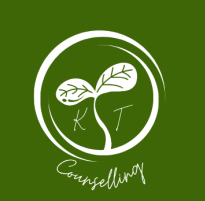Shining a Light on Disability: Getting Active Outdoors for All
When we think of disability, we often picture visible challenges - wheelchairs, walking aids, or guide dogs. But disability isn’t always obvious. Around 80% of disabilities are hidden, including neurological conditions, chronic illnesses, sensory sensitivities, learning disabilities, and mental health conditions. Many people live with barriers that others can’t see - fatigue, pain, anxiety, or sensory overload, which can make stepping outdoors feel overwhelming.
Yet for so many, time in nature is far more than fresh air - it’s freedom. It’s movement, community, adventure, and a way to reconnect with a world that can sometimes feel out of reach. And everyone deserves that. The good news? There are more ways than ever for disabled people - whether conditions are visible or hidden — to get active outdoors in safe, supported, and fulfilling ways.
Nature’s Soothing Rhythm
Nature has a unique way of calming our minds and bodies. The sound of leaves in the wind, water gently lapping on the shore, birdsong - these natural rhythms slow us down and remind us that, like the seasons, we too can change, rest, and grow.
For many people with hidden disabilities or mental health challenges, being outdoors brings relief that’s hard to find elsewhere. The steady pace of a woodland walk, the quiet focus of paddling on a lake - these moments can soothe anxiety, lift low moods, and help us feel more grounded.
How Counselling Can Help
Living with a disability, whether visible or hidden, can bring emotional challenges as well as physical ones. You might feel isolated, anxious about joining in, or struggle to find the confidence to reconnect with activities you once enjoyed.
Counselling offers a safe space to talk through what’s holding you back, process difficult feelings, and discover ways to rebuild confidence and hope. It can help you explore practical steps too — like finding the right activities and support to help you enjoy the outdoors again.
Accessible Walking Trails: Exploring Nature on Wheels
You don’t need to scale a mountain to enjoy nature’s benefits. Across the UK, and right here in Devon, there are many beautiful, accessible trails for wheelchair users, mobility scooters, and all-terrain vehicles like Trampers (which are great fun!).
Haldon Forest Park near Exeter is another local gem. Its accessible Discovery Trail is a gentle loop through the forest, with picnic spots, viewpoints, and sensory sculptures. For anyone who tires easily, there are benches and rest points along the way.
National Trust estates like Killerton near Exeter have made huge improvements too. Killerton offers an accessible trail through beautiful parkland and gardens, with mobility scooters available to borrow.
If you’d like to try new routes, Disabled Ramblers is a great resource. Hiring a Tramper can open up woodland paths, coastal routes, and countryside trails that once felt out of reach.
Accessible Water Sports: Freedom on the Water
For many disabled people, the water offers a special kind of freedom - and I know this first-hand. I’ve always loved the water: the sense of space, the gentle feeling of being held and supported. One of my favourite ways to get out there is tandem kayaking with my husband (he does most of the paddling — but don’t tell him I said that!).
For me, it’s not just about being active - it’s good for my balance and core muscle strength. There’s something wonderfully calming about drifting along, close to the water’s surface, feeling the steady rhythm of the paddle. It reminds me that, with the right support, we can still find adventure and joy - even if we have to do things a little differently.
In Devon, organisations like Access Adventures and Wetwheels South West make this freedom possible for many. Many sailing clubs offer Sailability — an RYA programme designed to help people with physical, sensory, or learning disabilities try sailing or powerboating safely. Kayaking and canoeing can be adapted with stable boats, specialist seating, or tandem paddling. Paddleboarding is becoming more accessible too, with wider boards and adaptive seats to help with balance.
Hidden Disabilities and the Outdoors
For people with hidden disabilities, the outdoors can bring unique challenges - sensory overload in busy places, unpredictable terrain, or anxiety about crowds or the weather. Many nature reserves and parks now offer quiet hours, sensory maps, or virtual tours to help visitors know what to expect. Shorter trails with clear signs, accessible toilets, and frequent rest stops can make a big difference.
Structured activities like guided walks, sensory gardens, or social clubs can help people with learning disabilities or neurodivergence build confidence in nature at their own pace.
Find Local Accessible Activities
If you’re based in Devon, Ableize is a great place to start. It lists disability groups, sports clubs, outdoor activities, and support services for people with learning disabilities, head injuries, and more.
Whether you’re interested in accessible cycling, water sports, walking groups, or just finding your local community, you’ll find people ready to help you take that first step, (or paddle!) back into nature.
Let’s Take That Next Step Together
Time outdoors can heal, soothe, and connect us - but sometimes we need support to get there. If you’re living with a disability, whether it’s visible or hidden, counselling can help you overcome barriers, process feelings, and find new ways to enjoy life fully again.
If you’d like to find out how I can help, I’d love to hear from you. Please visit my Contact Page to get in touch.
Nature has no barriers — and with the right support, neither should you.
